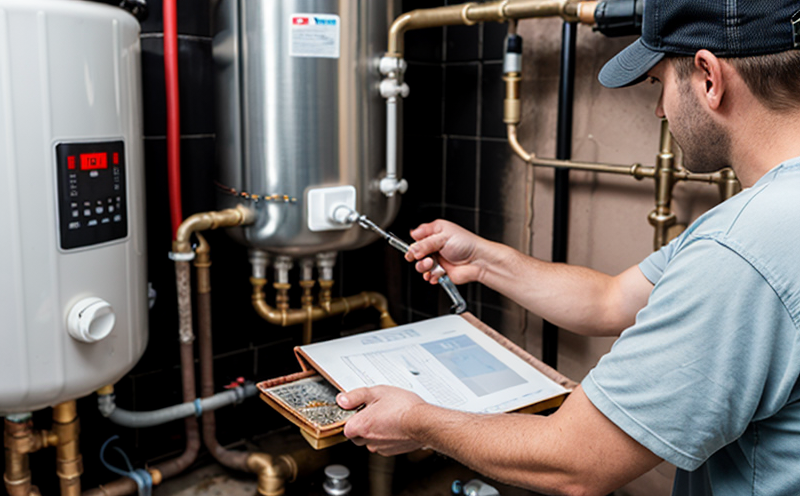Hot water system inspection
The inspection of hot water systems is a critical aspect of construction and building compliance. Hot water systems are not only essential for comfort but also play a significant role in maintaining hygiene and health within residential, commercial, and industrial settings.
These systems can vary widely in complexity, from simple storage tanks to complex multi-zone distribution networks. The primary components inspected include the water heater, pipes, valves, fittings, and controls. Ensuring these systems are correctly installed and maintained is crucial for preventing issues such as scalding, leaks, and contamination.
Hot water system inspections are typically conducted by qualified professionals who adhere to international standards like ISO 9001, AS/NZS 3500.4:2018, and EN 12876-1:2017. These standards provide a framework for inspecting and certifying hot water systems based on their design, installation, and performance.
The inspection process involves several key steps. First, the inspector reviews the system's design drawings to ensure compliance with relevant codes and regulations. Next, they perform a visual inspection of all components, checking for visible signs of wear, damage, or misalignment. Pressure testing is another critical step where the system is pressurized to identify leaks.
Temperature checks are conducted to ensure that water temperatures meet safety standards, typically ranging between 50°C and 60°C. This prevents both scalding risks for users and the risk of legionella growth at lower temperatures. Carbon dioxide testing may also be necessary to assess the efficiency of the system.
Regular inspections are essential not only for compliance but also for extending the life of the hot water system. By identifying potential issues early, maintenance can be planned to prevent costly repairs or replacements. Additionally, proper functioning of hot water systems contributes significantly to energy efficiency and sustainability in buildings.
- International Acceptance and Recognition: Inspections conducted by accredited laboratories meet stringent international standards and are widely accepted across borders. This ensures consistency in quality and reliability.
- Competitive Advantage and Market Impact: By ensuring compliance with all relevant regulations, businesses can avoid costly penalties and improve their reputation. This is particularly important for construction firms aiming to secure contracts from environmentally conscious clients.
Eurolab Advantages
Eurolab stands out in providing hot water system inspections due to its commitment to excellence, reliability, and customer satisfaction. Our team of experts ensures that every inspection is conducted with the highest level of professionalism.
We offer a range of services tailored to meet the needs of our clients, from initial design reviews to comprehensive maintenance programs. By partnering with Eurolab, you can be confident in receiving accurate and timely inspections that comply with all relevant regulations.
International Acceptance and Recognition
The hot water system inspection services provided by Eurolab are internationally recognized and widely accepted across multiple jurisdictions. This is due to our adherence to global standards such as ISO 9001, AS/NZS 3500.4:2018, and EN 12876-1:2017.
Our inspections are not only compliant with these international norms but also exceed the expectations set by local authorities in various countries. This ensures that our clients benefit from a consistent level of quality regardless of their location.
Competitive Advantage and Market Impact
EuroLab’s expertise in hot water system inspections provides significant advantages for businesses operating within the construction sector. By ensuring compliance with all relevant regulations, we help our clients avoid costly penalties and improve their reputation.
In a competitive market, demonstrating adherence to high standards of quality control can make a substantial difference. Our services not only enhance safety but also contribute positively to sustainability efforts, making us a valuable asset for environmentally conscious clients.





